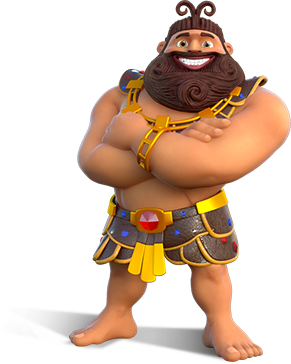What Are the Odds of Winning on a Slot Machine?
In the days of the mechanical, old-fashioned slots machines that rewarded luck with a small jackpot every time you hit the button, it wasn’t so much what were the odds of winning on a particular machine that was important. What was more important was how often you could beat the odds and walk away with the big payoff. It didn’t matter how big or how small the payoff would be. All that mattered was that you could beat the odds, at least when it came to gambling with a slot machine.
Slot machine odds have changed dramatically since then. Technology has provided mechanics that allow machines to pay out a larger amount per bet, which leads to larger winnings. When you add the fact that casino operators have designed slots with varying pay rates to the previously mentioned simplicity in computing for the payoff percentages, you can see that the world of casinos has literally gotten smaller. It has gotten less complicated for individuals to play. The question then becomes what are the odds of winning on a slot machine?
The simple answer is that it depends on what the odds are of three cherries coming out at one point in the long run. That long run is a long term payoff, not just an individual win or loss. Now, you can multiply that by a half dozen random variables and come up with a rough approximation of what the odds might be on any given machine. You will find that there are still many factors that can affect how that number is computed. For instance, it doesn’t really matter if all of the machines are paying out at the same rate.
What is more important is the way that those odds are assigned to each particular slot machine. One of the reasons that the odds have been changed over the years is that casinos have realized that they can’t just leave the reels spinning forever and expect to come out with a payout. That is why the casino management changes the odds.
If we were to compute what are the odds of winning on a slot machines based solely on random chance, we would quickly discover that there are too many constants to allow us to easily predict where the reels will stop. On the other hand, we can take the casino management’s ability to assign probabilities and use it to our advantage. There are two essential parts to this approach. We will discuss these two parts in a moment.
To calculate what are the odds of winning on a slot machines based on purely random chance, we must utilize what is known as a random number generator or RNG. A random number generator is a computer software program which generates different results, many of which are entirely dependent on how the user inputs a set of numbers. This computer software is programmed to only produce the numbers which are most likely to result in a payout. In essence, this means that the RNG is changing the odds on a continual basis based on what the user has previously chosen to place in the reels.
Using a random number generator is an excellent way to keep the odds of winning fixed, but it can also be used to slightly alter the payout percentage for all slots in a casino. A slots club is essentially a membership service where members pay a monthly fee to be allowed to play certain slots. A points system is used in which each member is given a fixed amount of points. These points are based on how much money a slot machine pays out. Each month the points counter is used to keep track of how many members have paid into their bankrolls.
The point system and the payout percentages are both based on what slot machines are offered by a particular casino. Payout percentages vary between casinos due to differences in slot machines, reels, payback percentages, jackpot amounts, and so forth. Because of these factors, there is a need for a casino to take care of its own end of the paying problem. This is done through the use of a random number generator to generate numbers which are consistent across all of the machines located within a casino.































